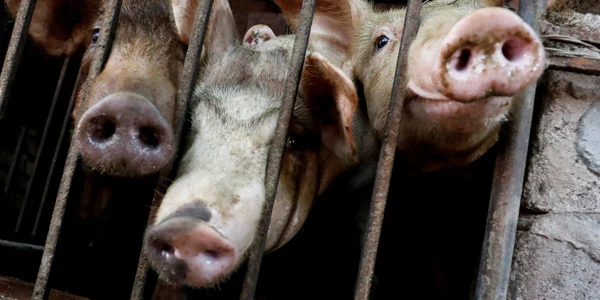British health authorities are investigating after confirming the first case of a new strain of swine flu, A(H1N2)v, which was detected during a routine flu check at a clinic in the North Yorkshire town. As reported by the UK Health Security Agency (UKHSA), the affected person had mild respiratory symptoms and has fully recovered from the infection, which passed without complications.
The presence of the A(H1N2)v virus was confirmed through polymerase chain reaction (PCR) testing and genome sequencing, and the investigation will now focus on determining the origin of the infection and its risk to human health, which includes monitoring close contacts with the virus. affected people, who will be tested “if necessary”.
Swine flu virus infections in humans are not uncommon, and in the last 20 years, 50 cases of A(H1N2)v have been reported worldwide. In August, the United States also recorded similar cases. Although the infections found in the UK are slightly different to human cases of swine flu globally, health authorities point out that the virus is similar to the virus found in pigs in the country.
Meera Chand, the agency’s incident director, explained that “we are working quickly to trace close contacts and reduce the possibility of spread” and added that “in accordance with established protocols, an investigation is underway to determine how the person contracted the infection and evaluate if there is one. other related cases. “Thanks to routine influenza surveillance and genome sequencing, we were able to detect this virus,” he said. “This is the first time we have detected this virus in humans in the UK, although it is very similar to the virus detected in pigs.”
Meanwhile, the new Health Minister, Victoria Atkins, welcomed the fact that the case was identified through a “comprehensive detection and monitoring programme” led by UKHSA, which is “closely monitoring the situation and taking action to “increase surveillance across existing programs that involving GP surgeries and hospitals in North Yorkshire.”
In pigs, birds and humans
In 2009, a human swine flu pandemic was declared, affecting thousands of people, caused by a virus that spread to pigs, birds and humans. Now, authorities are again recommending that people with flu-like symptoms avoid contact with other people, especially those who are elderly or vulnerable, or have other conditions.
Experts in the fields of virology and medicine, such as Professor Paul Hunter from the University of East Anglia and Professor Ian Jones from the University of Reading, indicated that the strain does not cause more severe disease than other common influenza strains, and issued warning messages. Reassurance said it was “highly unlikely” that the only case detected so far would be a cause for concern.

“Internet trailblazer. Troublemaker. Passionate alcohol lover. Beer advocate. Zombie ninja.”







